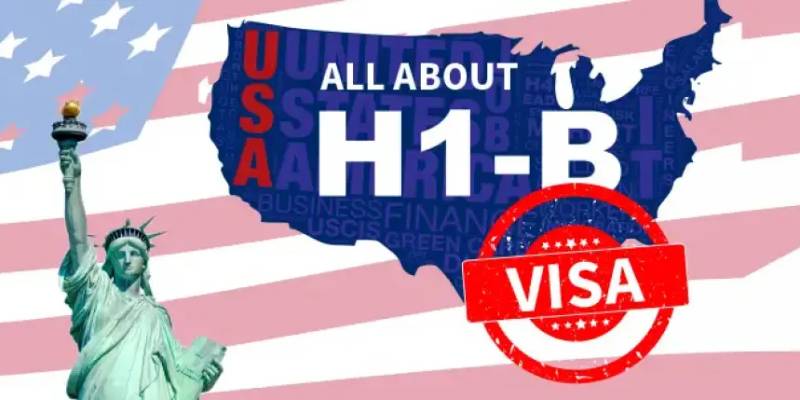The US government’s a firmer stance on hiring practices has escalated the conflict around the H-1B visa program. Businesses have received a strong warning from the Equal Employment Opportunity Commission (EEOC) not to prefer foreign workers over American candidates, a move that has caused concern within the immigrant community.
The Crackdown on Hiring Foreign Talent
The EEOC is stepping up its efforts to combat what it perceives to be unfair hiring procedures for migrant workers and visa holders, as stated by Acting Chair Andrea Lucas on February 19, 2025. “Unlawful bias against American workers is a widespread issue across multiple industries,” Lucas said, according to Business Standard. Employers are directly in violation of federal employment regulations when they prioritize foreign workers over U.S. Americans, she stressed, and she emphasized them against doing so.
The announcement marks a significant effort to ensure that companies adhere to hiring regulations and do not take advantage of the system to reduce expenses or bypass American talent. The EEOC has also suggested an increase in investigations, which could influence how businesses approach talent acquisition in the future.
The Controversy Surrounding the H-1B Visa Program
The H-1B visa program enables U.S. companies to recruit skilled professionals, particularly in fields like technology, engineering, and healthcare, where there are shortages of domestic talent. However, critics contend that some employers exploit this program to replace American workers with less expensive foreign labor. Concerns about wage suppression and discriminatory hiring practices have been amplified by notable cases, such as the lawsuit against Meta Platforms, which underscore allegations that certain companies systematically favor visa holders over American citizens.
Both the Biden and Trump administrations have taken action to increase regulations on the H-1B system. Striking a balance between preserving the flow of highly trained foreign labor and protecting American employment is the goal of salary adjustments, regulatory changes, and increased inspection of firms.
What This Signifies for Professionals in India
With more than 72% of all visas granted between October 2022 and September 2023 going to Indian laborers, they have long been the program’s largest beneficiaries. However, many Indian professionals would have a harder time finding work in the US as a result of the upcoming stricter requirements.
Jidesh Kumar, the managing partner at the corporate law firm King Stubb & Kasiva, cautions that imposing strict limitations on the H-1B program could have unintended consequences. “The US economy relies heavily on H-1B professionals to address skill shortages, especially in sectors like technology, engineering, and healthcare,” Kumar states. He further emphasizes that restricting the program might push top talent toward countries such as Canada and the UK, which are more welcoming to skilled immigrants. “Numerous H-1B professionals play a vital role in pioneering research, launching startups, and creating jobs in the US. A more restrictive approach could hinder innovation and economic progress.”
The Wage Debate: Are H-1B Visa Workers Underpaid?
A common criticism of the H-1B visa program is that it suppresses wages for American workers. However, findings from the American Immigration Council challenge this perspective. In 2021, the median salary for H-1B workers was $108,000, which is considerably higher than the median wage of $45,760 for all US workers. This evidence contradicts the belief that visa holders are primarily employed to lower American salaries.
As the EEOC ramps up enforcement and political discussions surrounding immigration and employment policies persist, the future of the H-1B visa program hangs in the balance. While the US government advocates for prioritizing American workers, companies that depend on international talent face a landscape of changing regulations. For Indian professionals, this transition prompts vital inquiries: Will the US continue to be the premier choice for skilled workers, or will they begin to seek opportunities in other countries?



